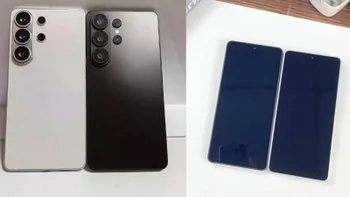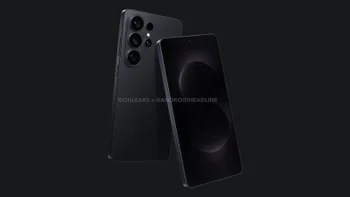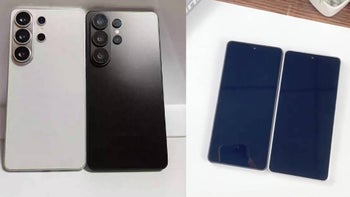Pixel 7 Pro prototype indicates the Tensor 2 could lag behind the competition (once again)

Remember the Pixel 7 Pro prototype that appeared at the beginning of this month in the hands of an unsuspecting user? Well, Google wiped the Pixel 7 Pro prototype, making it unusable. It seems some other prototypes were also going around, and although Google makes such devices unusable, surprisingly enough, some info could still be gathered from them.
A Google News Telegram group was contacted by someone with a bricked by Google Pixel 7 Pro and was able to reportedly learn something about the phone's chip from boot logs (via Android Authority). The info was shared on the group's Telegram channel and discloses some interesting glimpses of the second-generation Google-made chip.
Creativity and the desire for knowledge have led humanity to great highs, and now, these qualities have proven once again to provide interesting results. From boot logs of a reported Pixel 7 Pro that was wiped by Google, a Google News Telegram group was able to determine some details about the Tensor 2 (as the second-gen Tensor chipset will reportedly be called).
First off, the Telegram group learned that the Pixel 7 Pro will be getting a slight display upgrade. The panel the Pixel 6 Pro uses is the Samsung S6E3HC3, while the Pixel 7 Pro reportedly uses the S6E3HC4 display and it reportedly sports a 3120x1440 resolution (the same as the Pixel 6 Pro resolution, by the way). The newer panel is unlikely to mean a big improvement in the displays of the two models but could bring some small changes.
This contradicts other rumors that suggested Google will be going for last year's displays for the Pixel 7 and the Pixel 7 Pro, but we'll have to wait and see.
Now, onto the nitty-gritty of this leak. The Telegram group determined that the chipset will maintain a 2+2+4 CPU configuration, with two high-powered cores, two medium cores, and four lightweight cores.
As for the lightweight cores, according to the logs, Google has decided to stick with Cortex-A55. For those of you who don't know, this is an Armv8 CPU core, and it cannot be mixed and matched with the newer generation Armv9 core (which are Cortex-X2, Cortex-A710, Cortex-A510 - these are used, for example, in the flagship Qualcomm Snapdragon 8 Gen 1 chip).
This pretty much means that Google is going for older CPU cores like the Cortex-A78 and Cortex-X1 to work with the Cortex-A55. These cores are used in the Snapdragon 888 chip, the flagship chipset from last year found in the Galaxy S21 series, for example.
However, keep in mind that specs on paper don't necessarily reflect everyday life experiences all the time. We will have to wait and see when the Pixel 7 Pro gets officially released how it will fare against its competition, and whether or not the lack of 8 Gen 1-like performance will be that noticeable to be a deal-breaker for potential Pixel 7 Pro adopters.
The Telegram group also spotted references to some code names of the phones. Codenames confirmed by the logs of that Pixel 7 Pro prototype include Panther (Pixel 7), Cheetah (Pixel 7 Pro), and Felix (this one could probably refer to the Pixel 7a).
From earlier leaks and Google itself revealing briefly the Pixel 7 and the Pixel 7 Pro during Google I/O, we know the two phones will sport a refined design similar to last year's Google flagships with some new colors. So far, the camera systems are not expected to be updated. We have yet to hear leaks on the battery capacities. The two phones should be unveiled sometime in the fall, probably, in October.
Google Tensor 2 could not be a big upgrade, from what it seems
Creativity and the desire for knowledge have led humanity to great highs, and now, these qualities have proven once again to provide interesting results. From boot logs of a reported Pixel 7 Pro that was wiped by Google, a Google News Telegram group was able to determine some details about the Tensor 2 (as the second-gen Tensor chipset will reportedly be called).
This contradicts other rumors that suggested Google will be going for last year's displays for the Pixel 7 and the Pixel 7 Pro, but we'll have to wait and see.
As for the lightweight cores, according to the logs, Google has decided to stick with Cortex-A55. For those of you who don't know, this is an Armv8 CPU core, and it cannot be mixed and matched with the newer generation Armv9 core (which are Cortex-X2, Cortex-A710, Cortex-A510 - these are used, for example, in the flagship Qualcomm Snapdragon 8 Gen 1 chip).
This pretty much means that Google is going for older CPU cores like the Cortex-A78 and Cortex-X1 to work with the Cortex-A55. These cores are used in the Snapdragon 888 chip, the flagship chipset from last year found in the Galaxy S21 series, for example.
Unfortunately, this could mean that the new Tensor chipset will lag behind current flagship chipsets such as the Snapdragon 8 Gen 1 or the 8 Plus Gen 1, at least on paper. And, when the new 2023 chipsets launch, the Tensor 2 will be even further overtaken by its rivals.
However, keep in mind that specs on paper don't necessarily reflect everyday life experiences all the time. We will have to wait and see when the Pixel 7 Pro gets officially released how it will fare against its competition, and whether or not the lack of 8 Gen 1-like performance will be that noticeable to be a deal-breaker for potential Pixel 7 Pro adopters.
The Telegram group also spotted references to some code names of the phones. Codenames confirmed by the logs of that Pixel 7 Pro prototype include Panther (Pixel 7), Cheetah (Pixel 7 Pro), and Felix (this one could probably refer to the Pixel 7a).
Follow us on Google News














Things that are NOT allowed:
To help keep our community safe and free from spam, we apply temporary limits to newly created accounts: